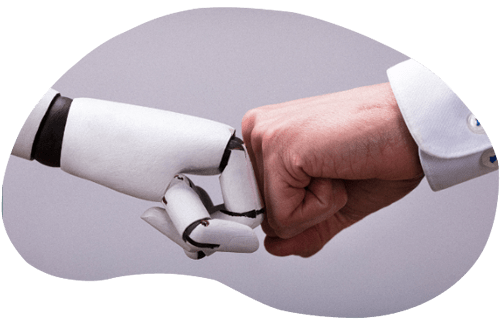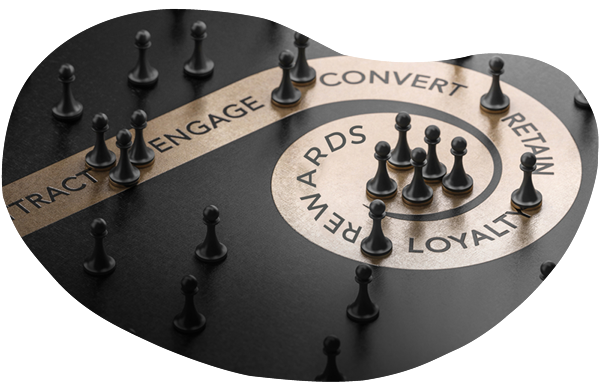We have been through bizarre years that were eye-openers in numerous ways. From smaller brands climbing uphill in no time to successful brands toppling upside down in the blink of an eye, we are still determining the countless twists and turns that direct selling businesses have witnessed over the last three years.
Despite brands struggling to improve their revenue, everybody had realized that businesses could not be just minting money but molding minds too. Unlike a usual product or trend-based topic, this blog article is inspired by the recent McKinsey’s The State of Organizations 2023 report that emphasizes major shifts that are transforming organizations. The Epixel MLM Software advocates transformation to build healthy organizational practices and empower distributors with novelty. In this article, we are inspecting the organizational shifts mentioned in the McKinsey report and how they would influence the direct selling industry for good.
Despite economic instabilities, rising competition, and market races to scale up sales and revenue, organizations are shifting their focus to various territories. Value propositions, talent acquisition, and retention, diversity, and inclusion at workplaces, and maintaining a mental equilibrium at the organizational level are to name a few. These are the most crucial drivers that are pivotal for any business to make their establishment enduring.
We are looking at the five factors the report says and how they could impact the direct selling industry in the coming years.
Transformations that are capable of redirecting the direct selling fraternity
Building resilience
Being able to adapt to changes quickly and imbibe the given situation is often found difficult. But in the due course of taking time to settle down, there could be irreparable losses. Crises are sure to occur if not anything horrendous like a pandemic, there could be functional and existential challenges causing imbalances in an organization. How does one tackle this? You are given no option to escape but to cope with it, how do you think that you can overcome the challenge? Blackened out? Hold on, we got you!
The direct selling way of building resilience
Enabling distributor performance is usually overlooked by most organizations for two reasons, one – they dodge the possibility of having to face an extreme situation, two – lack of efficient substratum to continuously review, update and integrate transforming business models into the system. When a distributor is trained to face adverse financial or any other organizational challenges, they become capable enough to gather as a team, analyze the situation thoroughly, rework their strategies, group them according to their capabilities, and get on the war front to fight it out. Agree, the mission need not be victorious every time. But the experience and the expertise earned from the situation are sure to help distributors improve their resilience. All these results in improved performance and speed because an empowered distributor doesn’t stagger but pounces much faster.
Automation and Artificial Intelligence
The Mckinsey report highlights how organizations are paving the way for applied AI. Companies are integrating AI systems to improve productivity, engagement, and overall performance. Many enterprise-level companies are leveraging AI's power to automate organizations' core functions to get quick and efficient responses. AI-enabled software is widely being used for talent acquisition and management at a more advanced level to improve assessment and team dynamics.
Automation and AI in direct selling businesses
Direct selling is a human-centric business, without a doubt. Nonetheless, automation is a necessity in this fast-paced world to streamline operations, reduce manual errors, faster decision making, and thus get a faster return on investment (ROI). Marketing automation is a path-breaking innovation that has made an impeccable impact on the industry giving a 360-degree backing for an efficient and result-oriented marketing success. Automation and AI have spread to every arena of a direct selling business including predictive sales evaluation through automated reporting and analytics, distributor onboarding, distributor training, automated commission payouts, social media automation, content marketing, and even with customer relationship management.
Identifying needs and wants
A brand can go to any extent with its marketing techniques to get its sales and revenue figures scaling upwards. But what makes a brand really successful is building credibility and trustworthiness along with its sales. A brand identity is built when it takes care of its customers understanding their preferences and interests. As much as brands are focusing and investing in product development and marketing, they are hugely relying on data to understand what customers are expecting out of them. Brands that treat their customers based on their priorities and reach out to them during their needs are sure to make their way to customers' hearts in no time. Well, making way wouldn’t suffice, how long a brand gets to stay in a customer’s heart matters the most. And for that brands need to tweak their strategies well enough to acknowledge their demands, engage with them rightly and maintain a healthy relationship building a loyal clientele.
The direct selling approach to acquisition and retention
Right from getting a customer onboard without complex processes and maximum engagement to measuring customer satisfaction and reactivating inactive customers, there has been a tremendous increase in brands investing in customer acquisition and retention. The direct selling industry is leveraging the power of loyalty and rewards to acquire and retain customers by delivering them premium services with superior rewards. This in turn gives brands unerring customer support that would build the base for a brand even when there are false allegations against them or when an unexpected flaw happens from their end. From omnichannel shopping experiences to hyper-personalized customer support, brands are making an invisible yet strongest investment called a loyal customer base this way.
Building capabilities from the ground up
An organization becomes capable only when every success-deciding factor is put together efficiently. The McKinsey report emphasizes the VECTOR model which is a proven technique to help organizations fill capability gaps. VECTOR covers six elements:-
V – Vision and leadership
Elementary factors are non-tangible yet crucial in every phase of an organization’s growth and expansion. Focusing on vision and leadership makes the brand’s journey smooth and successful.
E – Employees
The major pillar that holds an organization’s fort. Identifying what each of them is capable of, upskilling and reskilling their capabilities from time to time thus enhancing the overall productivity and organizational performances.
C – Culture and mindset
A healthy organization with a diverse culture of inclusiveness and varied mindset that are open to changes has tremendous growth potential. Holistic experiences can be delivered by organizations that are keen on enriching capabilities and adapting to changes.
T – Technology
What is building capability without technology? Data-driven innovations and artificial intelligence-integrated strategies are the core of any business. For organizations that are aiming at building the right competencies, technology is essential.
O – Organization
An organization that has a clear vision and mission defining distinct roles, and responsibilities could boost its capabilities beyond operational affairs.
R – Routines
Routines are what become standards and customs that define the credibility and identity of a brand. An organization that practices fitting routines is sure to triumph.
Direct selling capabilities and VECTORS
From the direct selling point of view, capabilities are measured based on how well an organization is managed with a strong decision-making capacity. Enterprise management and administration is the femur that comprises several factors that define organizational capabilities. Like how well VECTOR covers all aspects of an organization, enterprise management and administration look after distributor performances and sales performances, customer interactions, engagements, and satisfaction levels, and planning and strategizing business growth with predictive analysis. Direct selling businesses believe in strengthening every core attributes by overcoming each and every enterprise management challenges to build overall business capability.
Building the talent force
How many vacancies are open in your organization? How many profiles do you review each day wanting to fill up immediate vacancies? How many attend interviews and how many come back to join? The numbers are of course on a fall. There are people who are in desperate need of a job, but at the same time, the majority are taking their own time to find the ‘right place’. Tch…tch… the right place doesn’t mean a fancy figured package with numerous benefits, the generation Z and millennials are keen on value-oriented growth that has clear ethics and morale. Youngpreneurs don't live for a job nor do a job for a living, their preferences are definite and they prioritize convenience, transparency, and purpose over perks.
Beyond capabilities and strategies, an organization is best enabled and empowered when its talent propositions sync rightly with its values. Like how a rotten apple could spoil a whole basket of apples, a disengaged or demotivated employee could break down the talent force putting the organization’s productivity and profitability at stake. Identifying the right person for the best fit for the role could be tricky, but identifying value creators and value leaders, who bring value to the organization and who lead functions to build values is the right force that leads the show.
Acquiring and identifying talents in the direct selling industry
Distributors, the direct selling airbags are major value drivers that help organizations define their goals and objectives. From memorable onboarding, data-driven training, and knowledge empowerment that boosts distributor confidence to extensive sponsor backing, direct selling organization value talents and touch base with them often analyzing every nitty-gritty that defines the growth and success of a brand.
Operational shifts; overcoming challenges building opportunities
Organizational break shifts are indeed bombshells that are sure to burst into infinite transformations. Tomorrows seem unpredictable with innumerable changes that flow into the channel, however, the direct selling fraternity is keeping its doors open for every potential change to flow in, quickly get adapted to them, and structure businesses thereafter. As much as hybrid working conditions, digital transformations, and many other ‘surprise’ factors have created quite a stir, the industry is considering every aspect that could possibly strengthen business slowly but surely. Direct selling organizations are taking the mental stability of employees and distributors into serious account which is considered decisive and fundamental in building a peaceful coexistence at workplaces.
Find out from our customers how our solutions give MLM businesses an edge and exceed customer expectations
Organizations once considered financial, marketing, and promotional factors alone as success agents. However, with changing generations and attitudes socio-psychological, cultural, and even human emotions are impacting businesses largely. As much as robots take over us, emotions are never gonna die and hence, we are going to witness the rise of human-centric technology and emotional marketing strategies in no time.









Leave your comment
Fill up and remark your valuable comment.